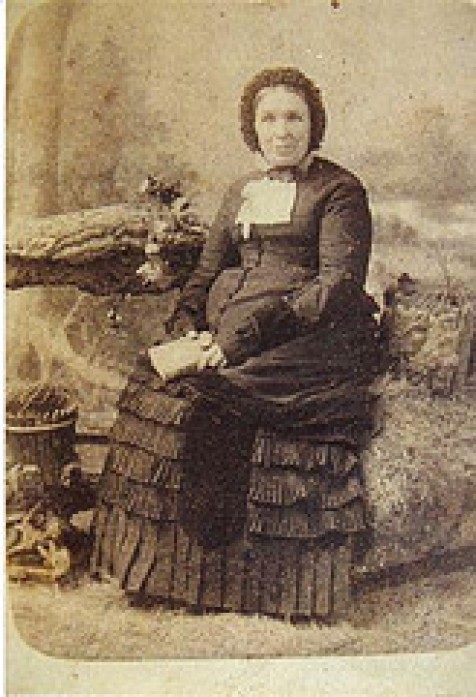
Inspiring resources to keep you creative and connected and an exciting wholehearted Quiet Writing guest posting opportunity!
Here’s a round up of what I’ve enjoyed and shared this week on various social platforms with a focus this week on being wholehearted in life and creativity.
One of the core concepts behind Quiet Writing is being wholehearted and having the self-leadership to connect with others and feel integrated within ourselves to achieve our creative goals.
This week, Creative and Connected explores this theme:
What is wholehearted? Why is it important? What are the factors in having a great life? How can we bring our whole selves to our careers and creative practices?
And there’s a special opportunity for you to share ‘Your Wholehearted Story’ on Quiet Writing! Yes, I’m putting out a call for for guest bloggers – I’m looking for some special people to write for Quiet Writing about what being wholehearted means to you. More on this below but I’m very excited to be opening Quiet Writing up to our collective voices so we can share the living of a whole, creative and connected life in support of each other.
Podcasts on wholehearted living
The 3 Most Important Factors for Having a Great Life with Jonathan Fields
Jonathan Fields is a leader in helping people create meaningful, connected and happy lives. In this interview on Melyssa Griffin’s Pursuit with Purpose podcast, he shares his work across different careers including shifting from law into different directions that were more in line with his heart and what he wanted in life.
Key points for me were:
- Jonathan’s core set of questions and metrics to consider when making a life change
- The three areas of your life that determine whether or not you’ll have a fulfilled, happy life: connection, contribution and vitality – and suggestions for how to achieve these.
Elizabeth Dialto on The Wild Soul Woman
This fabulous podcast chat between Julie Parker and Elizabeth Dialto on The Priestess Podcast was so much fun. Elizabeth is the founder of Wild Soul Movement, author of Untame Yourself, and host of the popular Untame The Wild Soul Woman podcast.
This conversation is about how the Divine Feminine can mean all manner of things for women in being untamed including embracing less traditionally female archetypes. The podcast also explores some of the traditional roles that women play that can keep us in people pleasing mode and not embracing our fuller, wilder, more assertive soul within. Super enjoyable and an invitation to wholehearted divine feminine living!
Books and reading notes
Reading wise this week I started Tracy Chevalier’s At the Edge of the Orchard about a dysfunctional family of apple-growers in 19th century America.
Tracy Chevalier is a favourite author of mine. Her specialty is historical fiction and she has a wonderful way of taking a historical story and building on it with a fictional narrative. She is especially strong on creating a sense of place. ‘Girl with a Pearl Earring’ is probably her most famous book but my favourite is ‘Remarkable Creatures’ set in Lyme Regis in Dorset and based on the real life story of pioneering fossil hunter, Mary Anning.
Tracy Chevalier announced on Twitter this week that Remarkable Creatures is currently being made into a movie.
Fossil hunters everywhere, rejoice! Mary Anning is coming to the big screen https://t.co/ZCDcOJsLuQ pic.twitter.com/Nw2VCg0ceO
— Tracy Chevalier (@Tracy_Chevalier) June 27, 2017
This is so exciting! When I read Remarkable Creatures it just begged to be made into a movie – it’s so evocative and visual and such a fabulous story. Plus if you love Lyme Regis, Dorset and fossils as I do, it’s just pure heaven. It’s a story of discovery, self-belief and strength, especially of female strength and courage, in the face of opposition.
Blog/Twitter/Instagram posts and interactions:
There have been some interesting blog posts on wholehearted living, being clear, moving through and understanding your personality type and its influence recently:
The only 3 things you need to live a good life explains Jonathan Field’s concept of how the joy of living can be seen in terms of three simple buckets: connection, contribution, and vitality. It’s easy to focus on and check in with, clear and remarkably helpful.
In Why your introversion doesn’t dictate your career path over on The Introvert Effect, Rebecca McFarland explains how being an introvert doesn’t limit you with your career paths and ways of working. You just need to learn to work it differently. Rebecca shares some fabulous tips for managing career and roles outside your comfortable energy zone.
In a great post on The Leadership Styles of Every Myers-Briggs® Personality Type, Susan Storm explores each MBTI type around the strengths and weaknesses of its unique leadership style. The key message?
Any type can be a leader, but every type is going to do it a little bit differently.
Insightful, thorough and grounded in practical experience, it’s a valuable reference for understanding leadership and personality type.
A post that spoke to me deeply this week was Nicole Cody’s Small Steps and a Pep Talk for Hard Days. It seems I’m not alone in finding this year to be a challenging one. Sometimes it’s hard to see that we are making progress. This post is a great reminder to pause and reflect on how far we’ve come. This is also a theme that popped up for me this week in my Tarot Narrative intuitive messages.
My own post on 10 Amazing Life Lessons from Swimming in the Sea was also really positively received in all sorts of ways which was so heartening. I loved writing this post on the many things that swimming in the sea has taught me this year. It’s been such a valuable learning experience in exercise, connection with community and feeling more whole through vitality and being coached by inspirational fit women buddies, Jeanette Buchanan and Samantha Wheatley.

An invitation to guest post on Quiet Writing on ‘My Wholehearted Story’
And now to an exciting opportunity to guest post on Quiet Writing!
Quiet Writing celebrates wholehearted living and writing, career and creativity.
But what does wholehearted mean to me – and you?
It’s a word I found coming out of my mouth in a negative sense firstly. About a year ago, I found myself saying, “I am just not feeling wholehearted any more.” And this sense started a deep search and a time of transition to a more wholehearted way of creating and living that is expressing itself in many ways. This is through Quiet Writing here, in my writing, in learning to be a Life Coach, in becoming certified in personality type assessment and in working more with intuitive tools such as tarot and oracle. And it’s also expressed in my developing work in coaching to support others who want to feel more creative and connected. And I am so loving all of this!
In the early stages of this transition journey, I listened to Elizabeth Gilbert’s Magic Lessons podcast “Who gets to decide if you’re a legitimate artist?‘ with poet, teacher, storyteller and artist, Mark Nepo. In discussing how to help Cecilia, a poet who has become marooned with writing because of not feeling good enough, being rejected and not being able to get into an MFA program, Mark offers her the word ‘wholehearted’ as advice and reads his beautiful poem:
Breaking Surface
Let no one keep you from your journey,
no rabbi or priest, no mother
who wants you to dig for treasures
she misplaced, no father
who won’t let one life be enough,
no lover who measures their worth
by what you might give up,
no voice that tells you in the night
it can’t be done.
Let nothing dissuade you
from seeing what you see
or feeling the winds that make you
want to dance alone
or go where no one
has yet to go.
You are the only explorer.
Your heart, the unreadable compass.
Your soul, the shore of a promise
too great to be ignored.
I listened to Mark reading this poem on the podcast again today and cried (again). It touches me so deeply and is what Quiet Writing is all about: letting no one keep us from our journey and being the creative explorer of our hearts.
So I’ve decided it’s time to hear more voices around wholehearted living and what it means to us here at Quiet Writing.
I am offering you the opportunity to consider guest posting here at Quiet Writing on ‘My Wholehearted Story’. Initially, I have six places on offer for 2017 – one per month to be featured here so that we can learn from each others’ journeys of the heart in this space.
I am hoping that we can also consider a regular or one-off publication or online magazine as well. I feel that there is a wealth of wholehearted stories to tap into to support us all, as source that we can add to and connect with over time.

What is ‘My Wholehearted Story’?
So here’s a summary of what I am thinking and what I am looking for:
What is wholehearted?
- bringing your whole self to career and creative practice
- not leaving parts of you, especially the creative, poetic, spiritual aspects, at the door, any door
- being whole, being authentic, being light, being present
- self-care and care of and connection with others
- yin and yang, dark and light, strength and weakness, shadow explorations
- living our unique passions, gifts and influences
- being our body of work in the world
How does it connect with Quiet Writing?
Quiet Writing focuses on the core values of being
creative, intuitive, flowing, poetic and connected
It’s about the strength that comes from working steadily without fanfare in writing and other spheres to coalesce, create, influence and connect. And it’s about honouring the process as much as the product; the being, becoming and journey, as much as the arrival. It’s about the artistry behind closed doors and how it merges and weaves into that of everyday life.
This beautiful quote, from Irene Claremont de Castillejo, in the frontispiece to The Heart Aroused by David Whyte captures the feeling for me around this more soulful kind of living:
Only a few achieve the colossal task of holding together, without being split asunder, the clarity of their vision alongside an ability to take their place in a materialistic world. They are the modern heroes….Artists at least have a form within which they can hold their own conflicting opposites together. But there are some who have no recognised artistic form to serve this purpose, they are the artists of the living. To my mind these last are the supreme heroes in our soulless society.”
What might you write about?
I’m interested in the ways that you have strived to build all or any of these values – creative, flowing, intuitive, poetic and connected – into living more wholeheartedly. And how you have worked and written and created quietly to make this happen, behind the scenes, as a form of the art of the living.
I’m interested in guest blog posts and writing around these types of questions:
- What makes you feel wholehearted and what does it mean to you?
- What have your learnings been about being whole in heart and mind?
- What tools, tips, practices, do you have for others?
- Which intuitive tools, exercise, learning, skills or courses have made a significant difference for you?
- How have you worked your strengths and weaknesses to blend and find wholeness?
- What have been the challenges, the shadow journeys and how have you overcome them?
- What fears have you faced and wrangled on the way and what have you learnt from this?
- Which passions and loves come together to make you feel whole?
- What have been the features of connecting to feeling more whole: rhythms, women’s voices, cycles, the journeys of others?
- What have been your key influences: which book or other inspiration helped make sense of all this for you?
- What aspects of your identity or personality journey have you worked through eg introversion, extraversion, understanding of your personality/MBTI type, your artistic or poetic self?
- Which critical learnings about an aspect of your personality made all the difference in feeling whole and comfortable in your uniqueness?
- What symbols, archetypes or natural cycles work for you and how do you work with them?
- How have you practised self-leadership to feel more wholehearted?
As you can see, there are so many ways of looking at this concept of wholeheartedness and what makes us sing and be able to do our unique work in the world. I’d love to hear your story!
You would need to contribute:
- a 2000 word (maximum) blog post draft to me a week in advance of an agreed date for publication
- any suggested accompanying images and photos that you would like to include
- a bio and accompanying photo
What are the benefits?
The benefits for you are:
- being featured as a creative and connected voice in the Quiet Writing community
- the opportunity to share your work, business, writing and learning
- the opportunity to flex your writing muscles in new ways
- the chance to reflect on your journey and experience in being wholehearted and share this
- increased connection with like-minded others
- the possibility of inclusion in a regular or one-off online publication if there is sufficient interest
The benefits for the Quiet Writing community are:
- our voices coming together to celebrate being creative, flowing, intuitive, poetic and connected
- sharing journeys to living more wholeheartedly so we can help each other to shine
- feeling more connected with a community of like-minded people around creative living and blending this with career and other aspects of life
- the opportunity for publishing as a collective of voices to help inspire others in wholehearted creative living
If you’re interested?
Initially, I have six guest blogging spots available for each remaining month of 2017. But I’m hoping that the response will be such that we can consider an ongoing ‘My Wholehearted Story’ feature each month or more regularly as well other ways to showcase our stories together.
If you are interested in one of these initial guest blogging spots, please contact me as soon as possible at terri@quietwriting.com with your immediate thoughts on what you would like to focus on for your piece.
I’ll provide more details on specifics following this but I’d love your initial thoughts and a sense of response.
Or feel free to provide any thoughts on the concept of ‘My Wholehearted Story’ in the comments or via email. I’d love to hear your thoughts and can’t wait to receive your responses!

Creative and Connected is a regular post each Friday – previous posts below. I hope you enjoy it. I would love any feedback via social media or comments and let me know what you are enjoying too.
Have a fabulous creative weekend!
Underwater swimming image via pexels.com
Keep in touch
Subscribe via email (see the link at the top and below) to make sure you receive updates from Quiet Writing and its passions in 2017. This includes MBTI developments, coaching, creativity and other connections to help express your unique voice in the world. My free ebook on the books that have shaped my story is coming soon for subscribers only – so sign up to be the first to receive it!
Quiet Writing is on Facebook – Please visit here and ‘Like’ to keep in touch and interact with the growing Quiet Writing community. There are regular posts on tarot, intuition, influence, passion, creativity, productivity, writing, voice, introversion and personality including Myers-Briggs Type Indicator (MBTI).
If you enjoyed this post, please share via your preferred social media channel – links are below.
You might also enjoy:
6 Inspiring Podcasts for Creatives and Book Lovers
Creative and Connected #3 – on self-care














